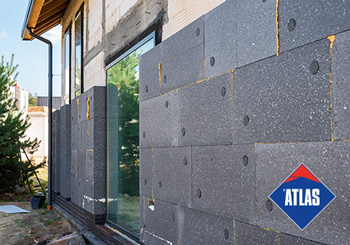Keeping your home warm and energy-efficient has become more important than ever, especially with rising energy costs and growing concerns over environmental sustainability. That’s where the Great British Insulation Scheme comes in, a government-backed initiative offering free or subsidised insulation upgrades for eligible households.
If you have heard about the scheme but aren’t sure whether you qualify, this blog is here to break it all down. Understanding GBIS grant eligibility could be the first step to reducing your bills and making your home more comfortable all year round.
What Is the Great British Insulation Scheme?
The GBIS scheme was introduced to improve the energy efficiency of homes with poor insulation, especially those in lower Council Tax bands or with low Energy Performance Certificate or EPC ratings
This scheme funds insulation measures such as solid wall, loft, cavity wall, and underfloor insulation to reduce heat loss and make homes cheaper and easier to heat. GBIS has already supported tens of thousands of households across England, Scotland, and Wales.
Why GBIS Grant Eligibility Matters ?
Eligibility isn’t automatic. You need to fall into one of the two key groups defined by the scheme: the general group or the low-income group. Each has specific requirements that determine the type and level of support you can receive.
Understanding your GBIS grant eligibility will help you make an informed decision, ensure you’re not missing out on government help, and make the application process much smoother. The scheme is designed to be inclusive, but there are still rules to follow.
Eligibility: General Group
The general group applies to households that meet property-based criteria rather than income-based. To qualify, your home must:
- Belong to Council Tax bands A to D, or A to E in Scotland and Wales
- Have your property with an EPC band of D, E, F, or G
- Be privately owned or rented (with landlord approval for rented properties)
There’s no need to be receiving benefits under this group. If your home is in the right tax band and has a low EPC rating, you are likely to meet GBIS grant eligibility requirements under the general category.
Eligibility: Low-Income Group
This group targets households receiving means-tested benefits, such as:
- Universal Credit
- Income Support
- Pension Credit
- Child Tax Credit
- Housing Benefit
If you meet both the income and property criteria, you’ll not only satisfy GBIS grant eligibility, but may also receive support for additional measures like heating controls or multiple types of insulation.
The scheme also accommodates referrals under a process called “flexible eligibility,” where local authorities can nominate households they deem vulnerable or fuel-poor, even if they don’t meet the exact benefit criteria.
What Types of Insulation Are Covered?
Once your GBIS grant eligibility is confirmed, a qualified assessor will inspect your home and recommend the most appropriate insulation measure. Depending on your property’s needs, you may be offered one or more of the following:
- Loft insulation
- Pitched or flat roof insulation
- Cavity wall insulation
- Solid wall insulation (internal or external)
- Underfloor insulation
- Room-in-roof insulation
- Park home insulation
As of 2025, it is also possible for eligible households to receive two insulation upgrades instead of just one, depending on their circumstances.
How the Application Process Works?
The process starts by checking your GBIS grant eligibility. If you qualify, an assessor will be sent to your home to carry out a detailed evaluation. Based on this, the most suitable insulation solution will be selected.
Installation is carried out by TrustMark-accredited professionals, and all work must meet current government and industry standards. The entire process, from eligibility check to completed installation, is designed to be simple and efficient.
Who Should Check Their Eligibility?
Whether you are a pensioner in a draughty home, a family managing rising energy bills, or a renter in need of improved comfort, checking your GBIS grant eligibility is worth your time. Even if you have applied for other schemes before, GBIS could offer support that wasn’t previously available to you.
It’s especially beneficial if your home is older, poorly insulated, or has a low EPC rating. If you’re unsure about your home’s rating or tax band, you can look it up online or ask a qualified assessor for help.
Infinity: Expert Help with GBIS Grant Eligibility
At Infinity, we’re dedicated to help households throughout the UK take advantage of energy saving schemes such as GBIS. We guide you from start to finish, checking your GBIS grant eligibility, scheduling assessments, and managing high-quality insulation installations through certified partners.
Our approach at Infinity is built on trust, clarity, and the satisfaction of our customers. We believe everyone deserves a warm, efficient home, and we’re here to make that happen with minimal hassle and maximum results. You can rely on us for professional guidance, transparent services, and lasting improvements.
Conclusion
The Great British Insulation Scheme is a powerful tool in the UK’s efforts to reduce energy bills and improve home efficiency. But to take advantage of it, you need to understand and meet the scheme’s specific requirements. That’s why checking your GBIS grant eligibility is a smart and necessary first step.
If you’re ready to upgrade your home’s insulation, don’t navigate the process alone. Visit Infinity today and let us help you find out if you qualify. One simple check could lead to lower bills, a warmer home, and a greener future.








